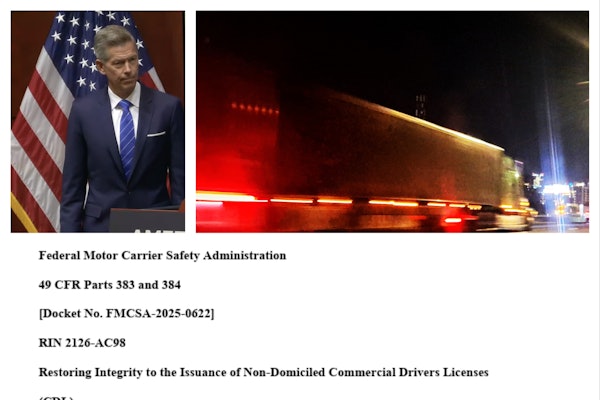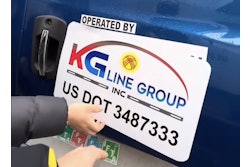In comments submitted on the Federal Motor Carrier Safety Administration’s proposed changes to the hours-of-service rules, the Commercial Vehicle Safety Alliance, the American Trucking Associations and a shippers’ group all opposed the proposals.
The CVSA indicated the proposed rules could have the unintended consequence of reducing overall highway safety. According to CVSA, the changes could make roadside enforcement more complex and open the door toward more commercial drivers falsifying their records.
“The consensus from our state and jurisdictional enforcement members regarding these proposed rules is that they are confusing and not easily understood. The proposed rules, in our view, will be more difficult to enforce roadside than the rules in place today,” said Stephen Keppler, CVSA executive director.
The current hours-of-service rules, which have been in effect since January 2004, made four primary changes to the regulations then in place: increasing the daily driving limit from 10 hours to 11 hours; increasing the required minimum daily rest from 8 hours to 10 hours; decreasing the number of hours on duty after which a driver may not operate a commercial motor vehicle from 15 hours to 14 hours; and allowing a driver to “reset” the weekly 60 or 70-hour on duty limits with 34 consecutive hours off duty. Under the current proposal, FMCSA is, among other changes, considering whether to reduce the daily driving limit from 11 hours to 10 hours and has proposed to limit the 34-hour restart provision by requiring that it include two periods from midnight to 6 a.m. and limiting its use to once per week.

As truck crash rates have declined significantly while the current rules have been in effect, CVSA contends FMCSA’s proposal does not appear to substantiate the need for the proposed regulatory changes. Instead, CVSA encourages enabling more tools for enhancing enforcement and additional exploration of the effect between hours of service, fatigue and performance before considering any drastic changes to the current rules.
The ATA said the proposed changes are politically motivated and that the current rules are based on science and have been proven to function safely.
“In its current HOS proposal, the agency has abandoned years of objective analysis in favor of speculation and internal ‘judgments’ of critical areas,” ATA said in its comments. “The agency’s approach in the current HOS proposal cannot be squared with its prior factual conclusions and analytical approach; is contrary to the real-world circumstances to which the rules apply; and its financial computations whither under objective scrutiny.”
NASSTRAC, an industry association that represents freight shippers in all modes of transportation, urged the FMCSA to preserve the current hours-of-service rules, which the group said have improved the trucking industry’s safety performance significantly.
In its filing, NASSTRAC said the proposed changes would have an extremely negative impact on over-the-road transportation and cripple supply chain operations of its members severely. “Shippers and carriers alike feel that FMCSA should not adopt significant changes in rules that are working unless the benefits clearly and substantially outweigh the inevitable costs and burdens of further modifications of the rules,” said John Cutler, NASSTRAC’s legal counsel. “Clearly, that standard has not been met here.”
NASSTRAC’s filing argues that, under the proposed rules, the trucking industry would need to hire 180,000 additional drivers and trucks to maintain current service levels. “Today, freight volumes are up, and the driver shortage is even worse than ever,” Cutler said.
The period to make comments about the proposed rules changes ended March 4.










